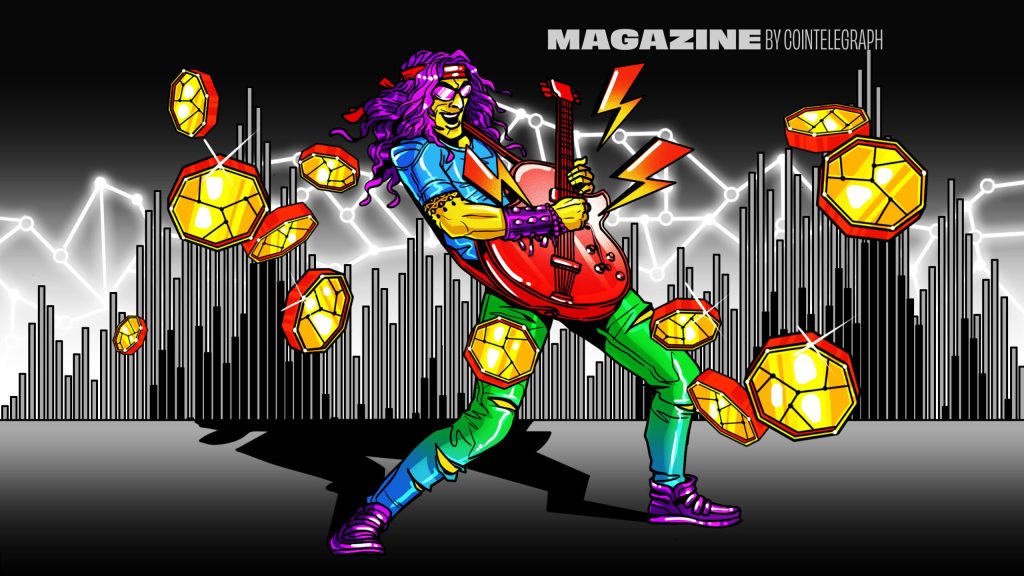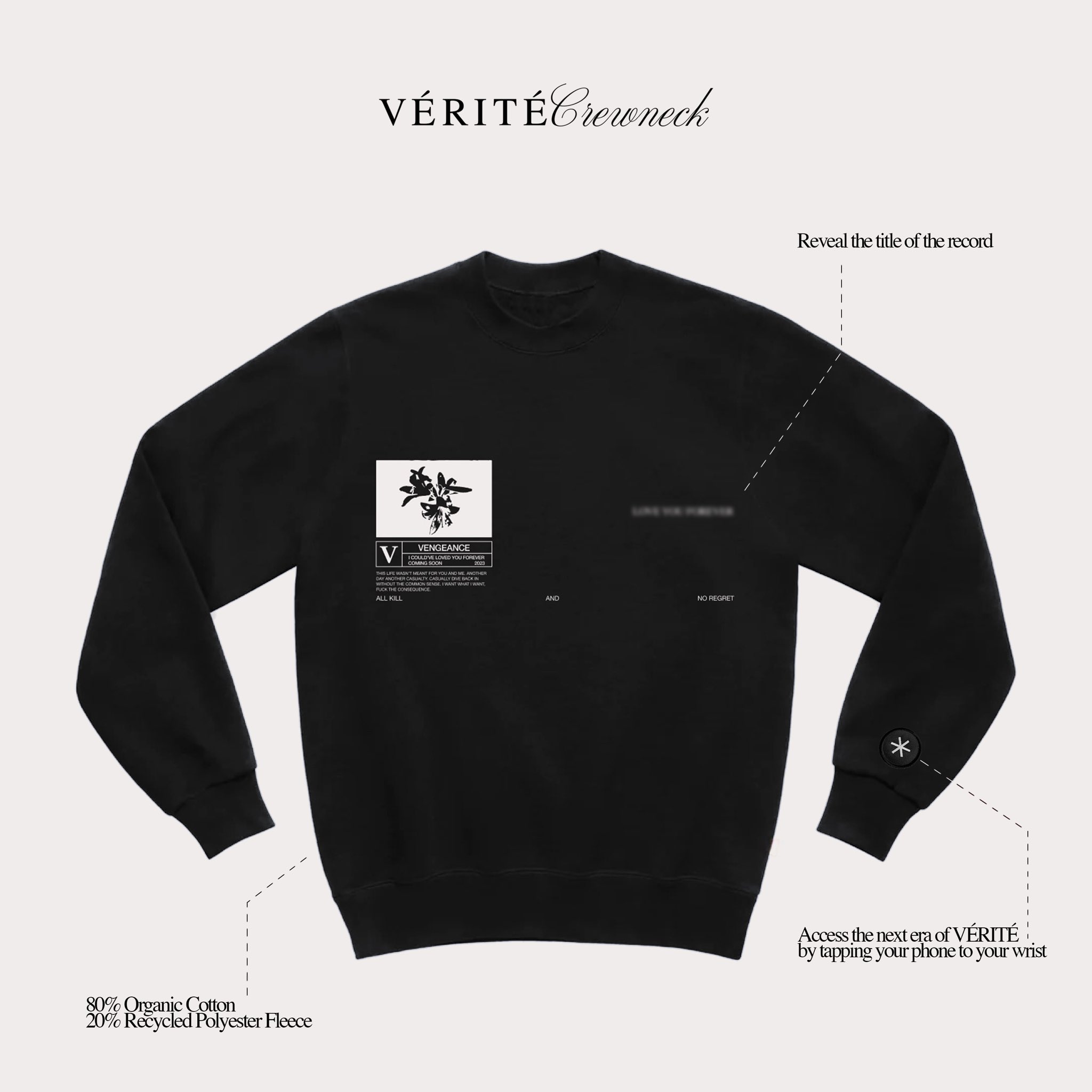Singer Vérité’s fan-first approach to Web3, music NFTs and community building – Cointelegraph Magazine

Carving out a sustainable career as an independent musician is no easy feat. The competition is fierce, support can be hard to find, and earning a living without the financial help of a major record label is an uphill battle. Yet, for those who are able to build a loyal fanbase, the freedom of complete creative control can be liberating.
Technology has long proven to be a potential friend to those musicians willing to embrace it, and nonfungible tokens are the latest innovation that many tech-savvy artists have begun incorporating into their careers. But NFTs remain both controversial and experimental, especially among the mainstream, and music NFTs are still relatively niche.
One artist who has cracked the code to maintaining a successful career as an independent musician is American singer Vérité, who has racked up hundreds of millions of streams without the support of a record label since releasing her first single, “Strange Enough,” in 2014.
After finding success and touring internationally, Vérité became one of the earliest musicians to experiment with NFTs in February 2021. Since then, she has built a strong Web3 community and had several successful high-profile drops, including releasing 1/1 NFTs, selling the master rights to her music, fractionalizing song royalties on the blockchain and giving NFTs to concert attendees. She has done all this while still retaining her dedicated non-Web3 fans, many of whom have little to no interest in crypto.
How does one walk this fine line and successfully integrate Web3 into their career without alienating their existing, perhaps skeptical, fans? Magazine sits down with Vérité to find out.
Don’t over-rely on Web3
For many musicians, Web3 is an exciting frontier filled with new possibilities for fan engagement and revenue generation. However, Vérité believes it is important that artists have diversified revenue streams and marketing strategies and don’t fall into the trap of assuming that the hype surrounding anything, especially NFTs, will last forever.
Building a music career in Web3 is “a bit of a double-edged sword,” Vérité tells Magazine. While it can help bring people together, “it becomes a negative when maybe artists limit themselves to only utilizing those tools and only existing within those communities, not really having the foresight that there was a hype cycle that then broke and these paths to monetization closed.”
“My focus is ‘How do I build a career that can withstand trend cycles, that can refocus on the foundation of my career while trying to push forward to build better?’ because we recognize that a lot of these systems are extremely broken.”
Protect and respect fans
Not every fan wants to join their favorite artist on their Web3 journey, and that’s fine, according to Vérité. When she first started releasing NFTs, she heavily emphasized that she was simply experimenting with the technology. “I was very, very clear that I don’t care if you come with me on this experiment — this is an experiment for me,” she states.
Read also
Art Week
Immutable Trash: Crypto Art Revisits Arguments on Censorship and Meaning
Features
E For Estonia: How Digital Natives are Creating the Blueprint for a Blockchain Nation
Vérité actually took it one step further, actively encouraging fans not to join her. “A lot of my communication with them was, ‘Don’t buy this. Don’t participate unless you are fully educated and willing to fully educate yourself and take on the risks.’” Even now, she still tells her fans that they should never feel pressured to participate in anything Web3-related.
“More than monetizing, it’s really protecting the people who have supported my career for the last eight years,” Vérité emphasizes.
It’s clear that not everyone is sold on the power and potential of blockchain. The bear market certainly hasn’t helped the space’s reputation either, with the collapse of crypto exchange FTX making mainstream media headlines and the prices of even blue-chip NFTs crashing 95% from their bull market peaks.
“If you go on my Discord — and I do tag everyone and say, ‘What do you think about crypto and NFTs?’ — people are not jazzed. Most of them, honestly. It’s just general disinterest,” Vérité explains. But it’s not necessarily that her fans actively hate crypto. “I’m finding that people don’t have a desire to do something new because they don’t see a problem, right?”
According to the singer, “NFTs, Web3, how it’s been marketed out to the masses is also wholly unpalatable really to non-tech-native fans.” Instead, she offers the following advice:
“I would more so recommend people to frame it as utilizing tools because it’s a weird market, and it’s hard to justify some of the scams and the negative aspects that can cause real harm to someone who isn’t knowledgeable or educated on those things.”
Offer an option, not a requirement
Instead of forcing fans to join her on-chain, Vérité instead focuses on building experiences with a Web3 element that is present but optional. She describes her approach as offering a “door” for fans to enter, one where blockchain functionalities can be unlocked to further enhance the fan experience — but where fans will still enjoy the experience regardless of whether they open the door:
“Do you need to jump the technological hurdle in order to have the experience, right? Or is it just a door? If it’s a door, you can talk about it because it’s not a burden.”
“For me, it’s really trying to consider, ‘What is the experience that we’re offering, what are the actual viable use cases of blockchain technology that we can tack on that aren’t burdensome?’” she says.
One example is “The Vérité Crewneck,” a tech-enabled sweatshirt the singer dropped in late 2022 in collaboration with IYK, a company working with brands, artists and creators to develop phygital experiences. The sweatshirt has a near-field communication, or NFC, chip embedded in the sleeve, which can be scanned to access exclusive content and unlock an NFT representing a certificate of authenticity.

Vérité explains that fans who bought the sweatshirt received “premier access to the next era of my records.” Buyers could scan the chip with their phones and get early access to music and perks such as behind-the-scenes content. “That was the main value proposition — not a Web3 activation, right?”
But the landing page also features an option to verify the garment, through which curious fans can receive their NFT.
Fans are at the center of it all
Between straight-up telling fans not to purchase her NFTs to offering them experiences where the Web3 option is an added bonus, Vérité’s fan-centric approach has undoubtedly played a significant role in her ability to push boundaries — and see success — in Web3 while still maintaining a loyal non-Web3 fanbase. Or, in her words, “My fans come first, and I don’t have fans just so that I can sell them shit all the time.”
Regarding her long-term hope for the future of blockchain and music, Vérité says her vision is that “we can demystify the black box of data that exists between artists and their fans, that is held by social platforms, ticketing companies, etc., and that blockchain actually does have the ability to make that information transparent so that artists can communicate directly to the people who support them and reward them in long-term scenarios.”
If the hype is to be believed, this dream may one day come true. But based on Vérité’s experience at the forefront of it all, it seems the only way the music-Web3 revolution will be truly successful is if fans are placed at the center of it.
Subscribe
The most engaging reads in blockchain. Delivered once a
week.















